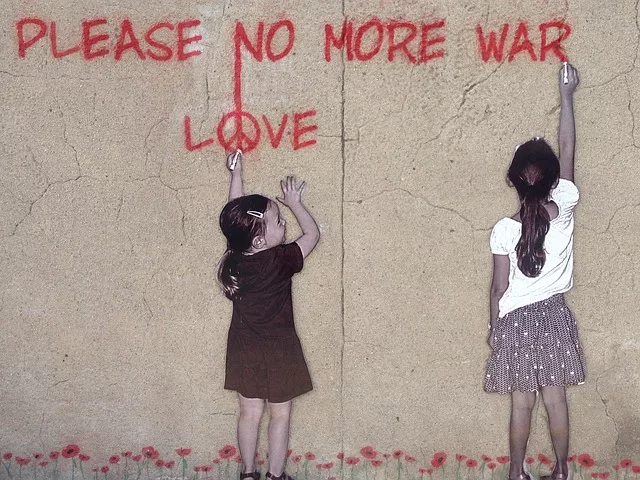In the tempestuous theater of war, where ideologies clash and nations grapple for dominance or survival, there lies an undeniable truth: it is invariably the common citizen who bears the brunt of the calamity. This stark reality manifests with unerring regularity, transcending boundaries and epochs, a relentless constant in the ever-shifting sands of geopolitical strife.
Consider, if you will, the perennial conflict between Israel and Hamas. This protracted struggle, a microcosm of broader regional tensions, exemplifies the tragic paradigm where the innocent suffer most. Wars, despite their ostensibly grand objectives and the rhetoric of their architects, seldom deliver the promised glory or peace. Instead, they grind down the hopes, dreams, and lives of ordinary people, caught in the crossfire of a battle they neither chose nor desired.
In Gaza, children grow up in the shadow of destruction, their playgrounds often marred by the scars of conflict. In Israel, families live with the perpetual anxiety of rocket fire, their lives punctuated by sirens and shelters. The narrative of war, often sanitized through the lens of strategy and national security, neglects these human stories – stories of disrupted lives, lost loved ones, and shattered communities.
The tragedy of this conflict, and indeed of any war, is not merely in its immediate casualties – as heartrending as they are – but in its enduring legacy. The trauma inflicted on generations, the deep-seated hatreds fostered, and the persistent sense of injustice that simmers long after the guns have fallen silent, these are the true costs of war. They are costs not accounted for in the ledgers of military budgets or the treaties of diplomats, but in the collective psyche of a people.
Regardless of the outcome of the Israel-Hamas conflict, the trajectory of suffering for the citizens seems tragically preordained. Wars may end, borders may shift, leaders may come and go, but the enduring legacy of conflict – the deep psychological scars, the ruptured social fabric, the lost potential of a generation – persists, a silent testament to the folly of resolving disputes through the barrel of a gun.
In this unending cycle, it is the voice of the common citizen, the one who pays the ultimate price, that is often drowned out in the cacophony of political posturing and ideological zealotry. It is a voice that speaks of simple desires – for peace, for a normal life, for the opportunity to raise their children without fear. Yet, this voice remains the most neglected in the discussions of war, considered perhaps too mundane in the grand chessboard of international relations.
As observers, commentators, or participants, we must not lose sight of this reality. The true measure of any conflict, its most profound narrative, is written not in the annals of military victories or diplomatic maneuvers, but in the lives of those who bear its deepest wounds. It is in their stories, their struggles, and their unquenchable hope for peace, that the true cost of war – and the true value of peace – can be found.
You may also like
-
Manifest Destiny 2.0: Trump’s Bizarre Obsession with Annexing Canada
-
The Perennial Power Players: Unraveling the Gerontocracy of the U.S. Congress
-
Americans Vote 2024: You Have a Choice Between This Old White Guy, or That Old White Guy
-
The Illusion of American Exceptionalism: Rethinking Freedom and Governance
-
The Seductive Art of Discord: A Choreography of Political Diversion in America
